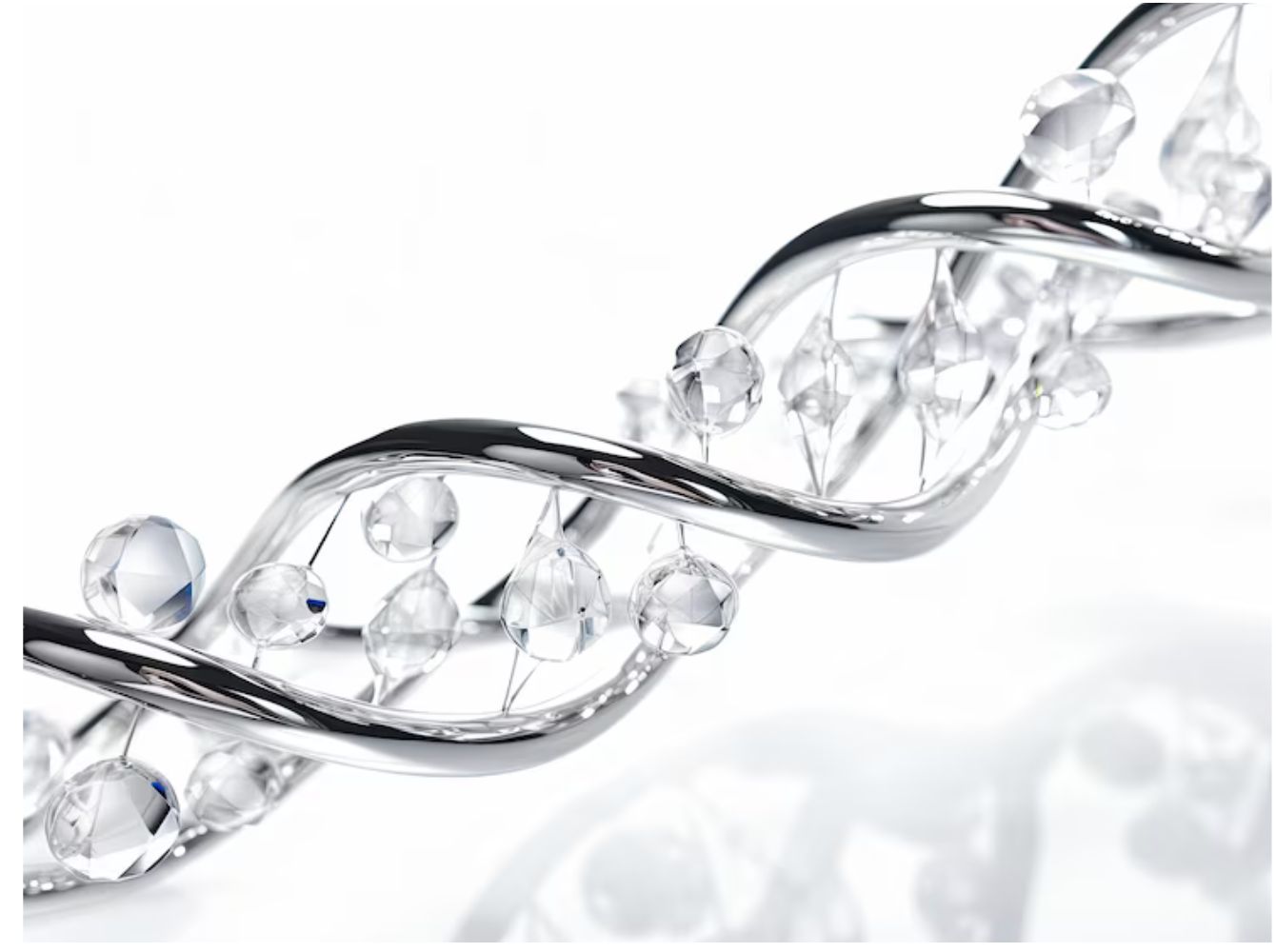Collagen is the invisible framework of our skin. It ensures firmness, elasticity, and strength. From the age of 25, its production declines, and signs of aging appear: wrinkles, loss of tone, and a less smooth texture. This development is natural, but dermatology and aesthetic medicine now offer concrete solutions to boost its production.
In this article, I invite you to explore the central role of collagen, the mechanisms responsible for its reduction, and, above all, the scientifically validated strategies for stimulating its production and strengthening its fibers. We will notably examine the effectiveness of powerful and clinically proven dermocosmetic active ingredients such as phytohormones, biomimetic peptides, and HPR retinol.
What is collagen?
A major structural protein in the dermis, collagen makes up approximately 75% of its composition. Along with elastin and hyaluronic acid, it forms a three-dimensional network that supports the skin and prevents sagging. Its triple helix structure, composed of glycine, proline, and hydroxyproline, gives it exceptional strength (Shoulders MD, Raines RT. Annu Rev Biochem. 2009;78:929–958).
The most important types of collagen for skin
- Type I : the most abundant, it provides resistance and firmness.
- Type III : Associated with youthful skin and elasticity. Highly present in young skin, it contributes to its suppleness and smooth appearance. Often referred to as the "youth collagen," it complements the action of type I to maintain plump and even skin. Over time, its synthesis decreases sharply: the skin becomes thinner, less elastic, and its repair capacity weakens, promoting the appearance of the first visible signs of aging.
Why do we lose collagen with age?
From the age of 25, production slows down. After the age of 40, it falls more rapidly, due to the effect of hormonal decline (estrogen, progesterone) and environmental aggressions such as UV rays, pollution and tobacco.
At the heart of this process are fibroblasts , key cells in the dermis responsible for the synthesis of collagen, elastin and hyaluronic acid. As true “architects of the skin,” they maintain the structure of the dermis and ensure its firmness, density and repair capacity. With age, their activity decreases: they produce fewer support fibers and the extracellular matrix degrades, leading to a loss of tone and more pronounced wrinkles.
Phytohormones , plant extracts that mimic hormonal action, bind to skin receptors and restart fibroblast activity. They stimulate the production of collagen and elastin again, without the risks associated with synthetic hormones (Bourgeois S. et al., Phytotherapy Research, 2018).
Scientific focus: phytohormones and fibroblast revival
Phytohormones, such as isoflavones or triterpene glycosides, partially mimic the action of estrogen on the skin. They activate the ER β (estrogen receptor beta) pathway, leading to increased collagen and elastin synthesis. Studies have shown measurable improvements in dermal thickness and firmness after 12 weeks (3 months) of topical application (Draelos ZD. J Cosmet Dermatol. 2018;17(3):431–436).
How to stimulate collagen production and repair?
Dermocosmetic active ingredients to favor
- Phyto-hormones : stimulate fibroblasts, reactivate the production of collagen and elastin, improving skin firmness and density.
- Retinol HPR : stabilized and well-tolerated form of retinol, acts on collagens I and III, promotes cell renewal and refines skin texture.
- Biomimetic peptides : mimic the skin's natural signals to trigger regeneration mechanisms and strengthen dermal structure.
- Niacinamide (Vitamine B3) : imporves elasticity, reduces pigment irregularities and strengthens the skin barrier against external aggressions.
- Hyaluronic acid : captures and retains water in the dermis, provides and plumping effect and supports the extracellular matrix.
Hygiene of life and aesthetic medicine
A healthy lifestyle is essential to preserve collagen and optimize the effects of cosmetic treatments. Daily sun protection remains the first anti-aging measure, as UV rays accelerate the breakdown of collagen fibers. A diet rich in vitamin C, zinc, and copper supports the natural synthesis of dermal proteins and limits oxidative stress.
In addition, certain aesthetic medicine techniques directly stimulate fibroblasts and potentiate the action of cosmetics:
-
Microneedling: micro-perforations that trigger skin regeneration and collagen production.
- Radiofrequency : controlled heating of tissues which tightens the skin by stimulating neocollagenesis.
- Micro-focused ultrasound (HIFU) : deep targeted energy for a natural and lasting lifting effect.
Combined with dermocosmetic treatments, these approaches create a synergy between prevention, stimulation and correction .
I developed my formulas using this approach, so that they act in synergy with biostimulation treatments, thanks to biostimulating active ingredients such as the exclusive phyto-hormone complex.
Among them, NIGHT CREAM 554 is the most biostimulating of the range, designed to boost fibroblast activity during the night, a key moment in skin regeneration.
FAQ: Frequently Asked Questions About Collagen
Are collagen creams effective?
Collagen applied to the skin hydrates and smooths the surface, but does not penetrate the dermis. Effective formulas instead contain active ingredients that stimulate endogenous production: phytohormones, HPR retinol, biomimetic peptides.
Why combine HPR retinol, peptides and phytohormones?
Because they act on different levels: retinol activates collagen synthesis, peptides strengthen cellular communication, and phytohormones reactivate fibroblasts.
Are collagen supplements helpful?
Yes, if they are hydrolyzed (peptides) and taken over several weeks (Proksch E. et al., Skin Pharmacol Physiol. 2014). They can complement a skin routine but do not replace topical pro-collagen care.
What is nano-collagen?
These are very small fragments capable of better penetrating the epidermis, acting mainly on hydration and texture.
Does UV destroy collagen?
Yes, sun exposure is one of the main factors in collagen degradation. UVA rays, in particular, penetrate the dermis and break down the fibers. This is why daily sun protection is essential.
Conclusion
Preserving and stimulating collagen is essential for maintaining firmness, elasticity, and radiance. Active ingredients such as phytohormones, HPR retinol, and biomimetic peptides are now at the heart of effective dermocosmetic strategies. Combined with a healthy lifestyle and certain medical techniques, they can sustainably prolong skin's youthfulness.
